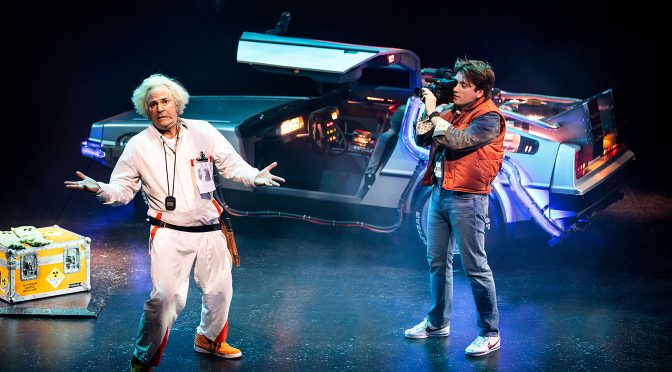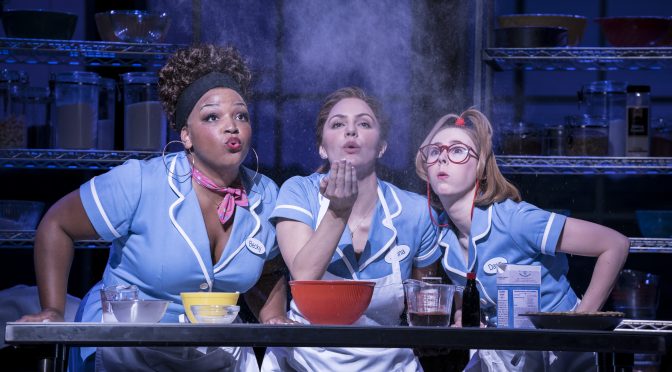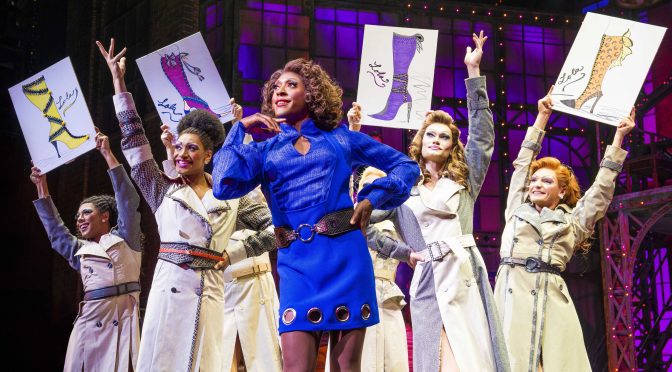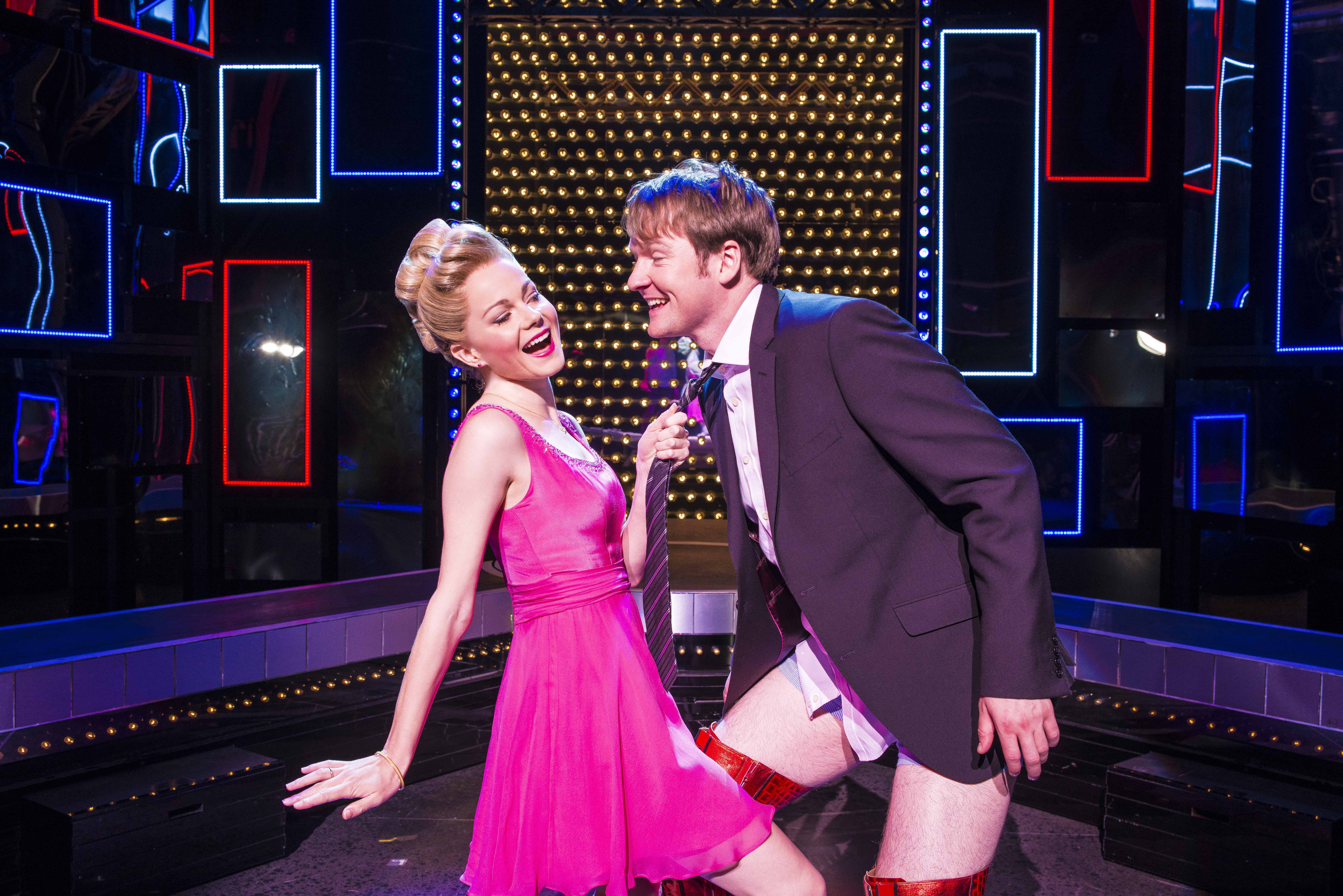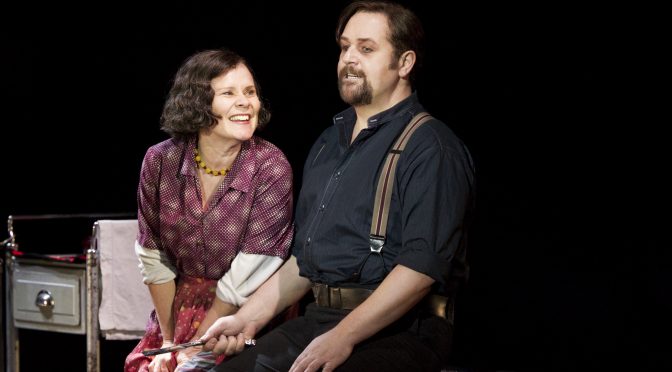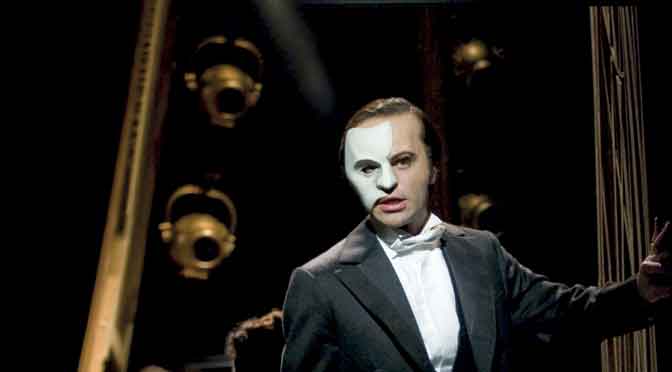The nostalgic appeal of bringing films to the stage makes them a safe bet for ticket sales. But to make the transition special, some risks need to be taken. Just plonking this story of time-traveller Marty McFly, stranded in the 1950s, on stage isn’t enough. Leaving aside whether Robert Zemeckis’ mid-1980s movie is any good (it isn’t), this adaptation has so little imagination it will only please the most die-hard fans.
Back to the Future is a big show – you get your money’s worth. The production, designed by Tim Hatley, looks expensive. The special effects, especially those with the famous DeLorean car, are impressive. But behind the sleek scene changes, the choreography is disappointing and the fight scenes poor. The action is well marshalled by director John Rando, but what’s going on is dull and the book from Bob Gale is slow.
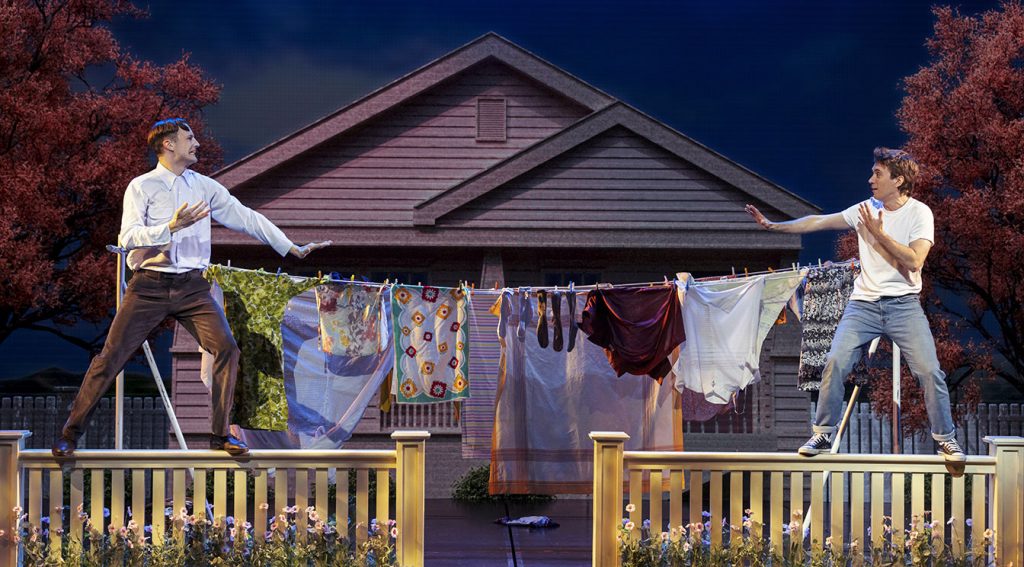
Maybe this time travel drags because the characters are thin and the humour weak. Take Marty’s girlfriend, present to provide a ballad, or the school bully given malapropisms instead of jokes. Our hero is bland, which Olly Dobson’s energetic performance does little to correct. The only characters who stand out are Marty’s father and his scientist friend Doc Brown, played respectively by Hugh Coles, who makes an excellent West End debut, and Broadway star Roger Bart. But note how both men use to silly strutting or voices to get laughs – both effortful techniques that tire quickly.
You might forgive this if the score was any good. But both music and lyrics, by the hugely successful Glen Ballard and Alan Silvestri, just aren’t memorable enough. These are tunes you forget before they finish. The lyrics are leaden and long-winded with far too many references to self-help and time passing. It’s frustrating, as the potential is clear – the mix of 1980s and 1950s sounds could be interesting. But what about a musical dialogue between the decades? Instead we have a collection of humourless pastiches lacking any excitement.
While I’d usually be grateful that a show has an original score at all, this music is too close to songs heard in the background of a film, and they cannot hold a stage. Sentimental numbers are particularly painful. Even worse, the songs aren’t performed particularly well. Leaving aside whether the film’s hit number, The Power of Love, is any good (it isn’t), its brief rendition is the evening’s highlight. Back to the Future ends up a waste of time.
Until 12 February 2023
www.backtothefuturemusical.com
Photos by Sean Ebsworth Barnes

